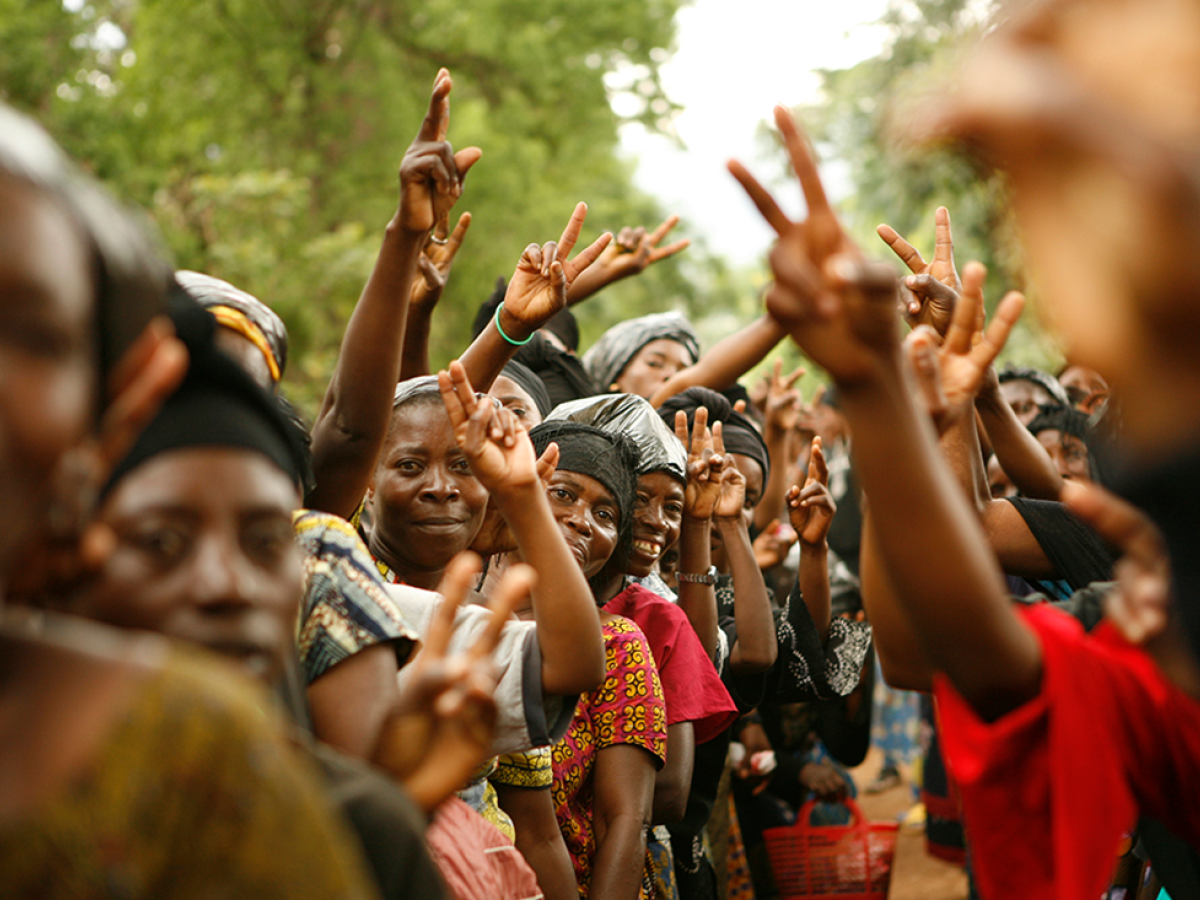
For societies to thrive, all people must have equal rights, be able to safely exercise their own voice, and live free from intimidation, harassment, discrimination and violence. Preventing and responding to gender-based violence (GBV) around the world is a matter of human rights, justice, equity, and equality.
GBV is any harmful threat or act directed at an individual or group based on actual or perceived sex, gender, gender identity or expression, sex characteristics, or sexual orientation, and/or lack of adherence to varying socially constructed norms around masculinity and femininity. Although individuals of all gender identities may experience GBV, women, girls, and LGBTQI+ individuals face a disproportionate risk of GBV across every context due to their unequal status in society. GBV also cuts across identity categories and social statuses, including but not limited to age, disability, ethnicity, race, socioeconomic class, religion, education level, and citizenship status. Perpetrators of GBV operate in a variety of social locations, including the family, the public sphere, workplaces, schools, religious institutions, and via digital technologies, with technology-facilitated gender-based violence (TFGBV) often crossing from digital spaces to in-person experiences. GBV is rooted in structural gender inequalities, patriarchy, and power imbalances. Across its many manifestations, GBV is a human rights violation prohibited under international humanitarian law and a barrier to civic, social, political, legal, and economic participation.
Although statistics on the prevalence of GBV vary, the scale is tremendous, and the consequences for individuals, families, communities, and countries are devastating. Despite the scope of the issue, there are proven strategies to prevent, mitigate, and respond to GBV effectively. These include:
- Expand the provision of high-quality, survivorcentered GBV response services addressing health, psychosocial, shelter, economic, and legal needs in humanitarian and development settings.
- Pursue structural interventions to improve the creation, implementation, and enforcement of laws and shift harmful gender norms and beliefs.
- Reduce acceptance of GBV and promote more gender-equitable norms across individual, household, community, and institutional levels.
- Engage local, women-led, and women’s rights organizations, community influencers, and men and boys to achieve transformational change.
Eliminating GBV continues to be a long-standing goal of the U.S. government in foreign assistance. For more than two decades, USAID has worked with a wide array of partners to increase awareness of the scope of GBV and its impact; improve services for survivors; and strengthen prevention and response efforts. In December 2022, the U.S. government released an update to the U.S. Strategy to Prevent and Respond to Gender-Based Violence Globally (Global GBV Strategy), recommitting to the critical work of preventing, mitigating, and responding to GBV globally with the vision to build a future free from GBV for all people.
With the Global GBV Strategy, we seek to:
- Advance equity and inclusivity, and address the specific identity factors that increase the risks of GBV and undermine access to services and safety, particularly for the most marginalized groups;
- Support expanded approaches for addressing GBV priorities across a range of thematic areas; and
- Strengthen the commitment and work of the U.S. government to bring to scale what works, enhance our partnerships, and improve our capacity to prevent and respond to GBV.
Related Links
- Addendum to the Toolkit for Monitoring and Evaluating Gender-Based Violence Interventions along the Relief to Development Continuum
- Toolkit for Monitoring and Evaluating Gender-Based Violence Interventions Along the Relief to Development Continuum
- Collective Action to Reduce Gender-Based Violence (CARE-GBV)
- Gender-Based Violence Environment Linkages Center
- Fact Sheet: 2022 U.S. Strategy to Prevent and Respond to Gender-Based Violence Globally
- National Strategy on Gender Equity and Equality
- USAID 2023 Gender Equality and Women’s Empowerment Policy
- Executive Order 14020 on Establishment of the White House Gender Policy Council
- LGBTQI+ Inclusive Development Policy
